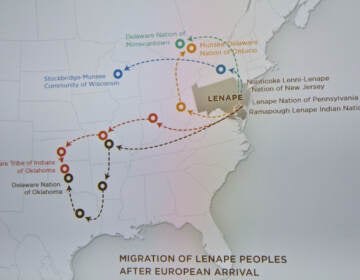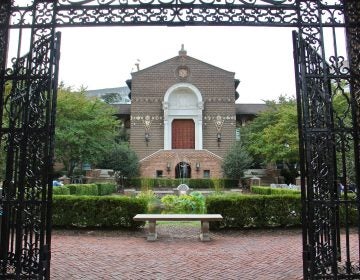Penn Museum lays to rest the remains of 19 Black Philadelphians, apologizes for racist Morton Cranial Collection
The Black Philadelphians Descendant Community Group opposed the burial, insisting it should have had the right to determine what happened to the remains.
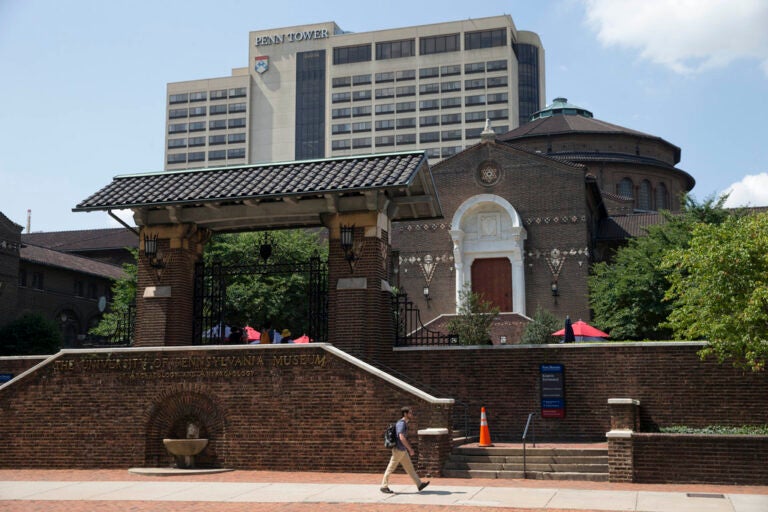
File photo: A man walks past the The Penn Museum, part of the University of Pennsylvania, Tuesday, Aug. 5, 2014, in Philadelphia. As part of a growing effort among museums to reevaluate the curation of human remains, the Ivy League school laid some of the remains to rest last week – specifically those identified as belonging to 19 Black Philadelphians – and officials held a memorial service for them on Saturday, Feb. 2, 2024. (AP Photo/Matt Rourke, File)
From Philly and the Pa. suburbs to South Jersey and Delaware, what would you like WHYY News to cover? Let us know!
In the early 1800s, Dr. Samuel Morton and his associates unethically collected hundreds of skulls of deceased Black men and women as part of a racist project to prove white superiority.
The cranial collection was originally housed in the Academy of Natural Sciences of Philadelphia, but was transferred to the Penn Museum in 1966, where parts of the collection were put on display.
Three years ago, the museum formally apologized for accepting the collection and announced it will no longer display any exposed human remains.
On Saturday morning, an interfaith commemoration service was held at the museum to honor and lay to rest the remains of 19 Black Philadelphians that were part of the collection.

Rev. Charles Lattimore Howard, the University of Pennsylvania chaplain and vice president for social equity and community, said there is deep resentment and anger at the way in which Black bodies were stolen and disrespected.
“And yet as a minister I also feel gratitude and some relief for the fact that our elder siblings can finally be laid to rest,” he said.
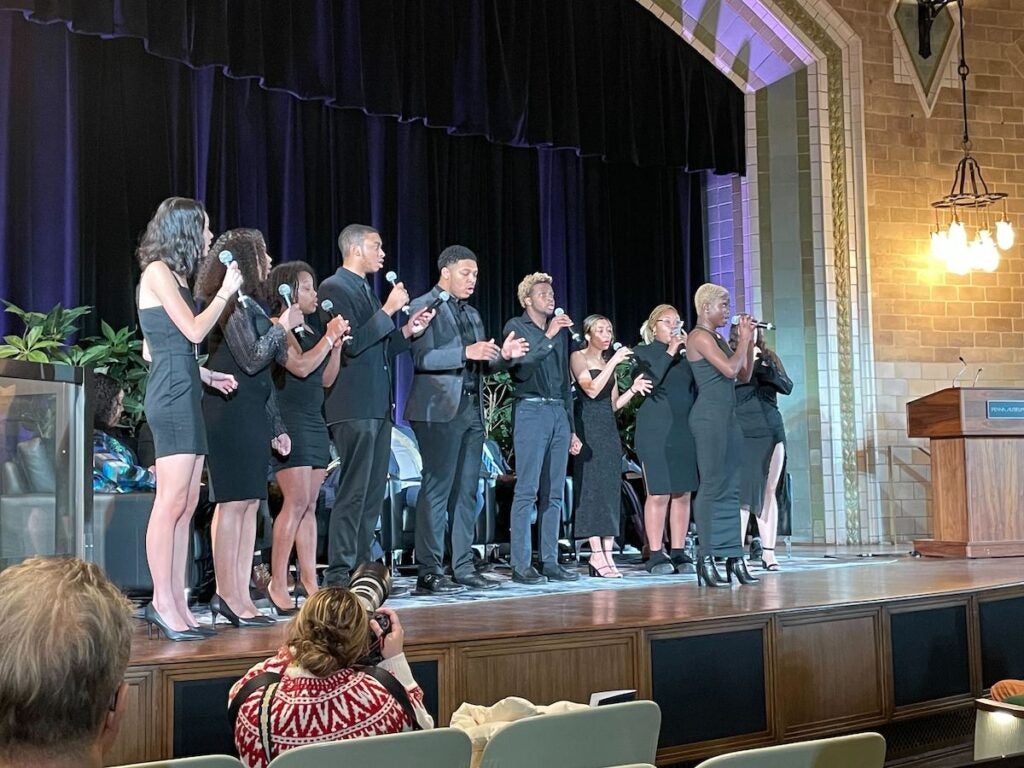
But some community members disagree with Penn Museum’s actions. The Black Philadelphians Descendant Community Group opposed the burial. The group has joined forces with several anthropologists and historians to form an organization called Finding Ceremony.
They are now doing their own research, insisting Penn Museum has not adequately studied the history of the remains.
A leader of the group, aAliy Muhammad, who serves as a member of the museum’s community advisory committee, has accused Penn of trying to improperly exert power and control over the process of return.
Last year, Muhammad challenged the museum’s plan to bury the remains, but a judge ruled the descendent group did not have legal standing to make that challenge.
Rev. Jamie Eaddy-Chism told those assembled on Saturday that though the names and stories of the deceased are not known, “we know them, they are our great grandmothers and grandfathers, they are ones who whisper in our ear that liberation is possible when we feel like we are chained.”
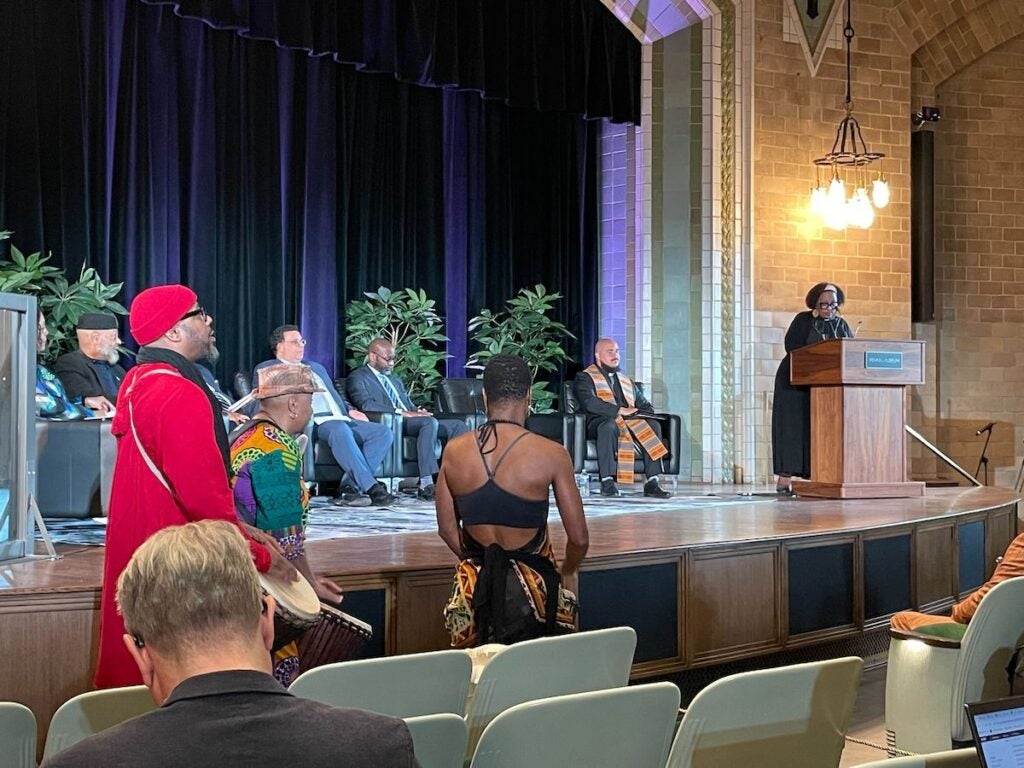
After the interfaith commemoration service, a blessing ceremony was held at Eden Cemetery, where the remains of 19 people identified as having been residents of Philadelphia were interred.
University of Pennsylvania Provost John Jackson said the commemoration service served as a public recognition that silence is complicity.
“We must not only recognize the mistakes of the past, but speak out and take corrective action to move forward,” he said.

Jackson said in this country, large, old institutions, including the University of Pennsylvania, often have complicated histories.
“The remains of these people, human beings, our brothers and sisters, dehumanized, should have never been on display,” he said. “On behalf of the entire university, please accept my most sincere regrets and my deepest apologies.”
“As we continue to examine and learn from our complex and sordid history, we will endeavor to do all we can to address the wrongs of this past,” Jackson said.

Get daily updates from WHYY News!
WHYY is your source for fact-based, in-depth journalism and information. As a nonprofit organization, we rely on financial support from readers like you. Please give today.




